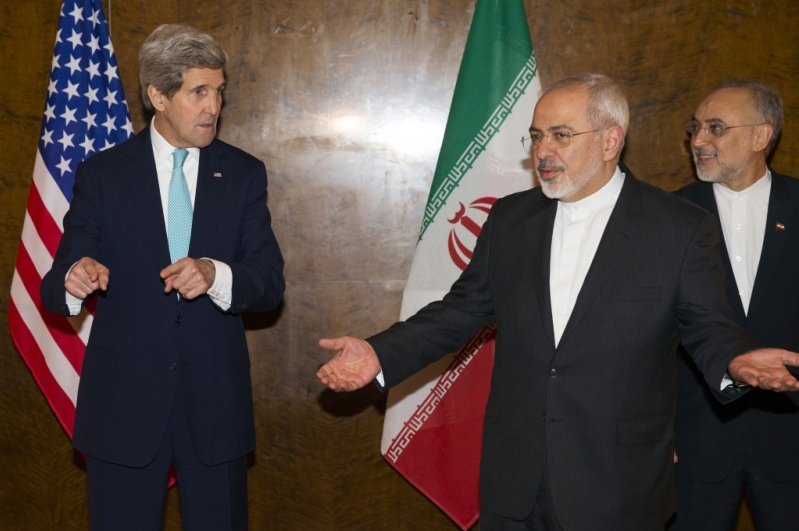
The framework for a possible landmark nuclear deal has been reached between the United States and Iran. However, it could fall apart after parties from both countries have expressed concern surrounding the terms negotiated in Switzerland on Thursday.
In a press release posted on Christian News Service by Daryl Hedding of the International Christian Embassy Jerusalem, prominent Christian leaders have signed a joint letter addressed to President Barack Obama and the leaders of Congress. They also delivered a petition that was signed by more than 23,000 people that asked Iran to dismantle its nuclear program.
"I was honored to deliver the petition and leadership letter on behalf of so many Christians who understand the implications of a nuclear Iran on both America's national security and Israel, our closest, longtime ally in the Middle East," ICEJ-USA National Director Susan Michael said as she presented the petition to Senate Majority Leader Mitch McConnell, R-Ky.
According to Hedding, ICEJ-USA collected signatures for the petition over a three-week period. Both the letter and the petition were sent to the White House, Senate Minority Leader Harry Reid, D-Nev., House Speaker John Boehner, R-Ohio, and House Minority Leader Nancy Pelosi, D-Calif.
"The petition calls for any agreement between the United States and Iran to be based on two principles," Hedding wrote. "It must completely dismantle the Iranian regime's ability to build a nuclear bomb, and Congress must ratify any agreement proposed by the Administration with regard to Iran's nuclear program."
Hedding reported that prominent American Christian leaders signed the letter. Some of them included Dr. James C. Dobson, Rev. Kenneth Copeland, Tony Perkins and Dr. Gary L. Bauer.
"While we applaud your commitment to a diplomatic resolution that would prevent Iran from obtaining a nuclear weapon, recent reports indicate the P5+1 are willing to make significant and worrisome concessions for the sake of the deal," Michael wrote in her letter.
Michael argued that many people in the United States and Israel thought the agreement was "a bad deal."
"They fear Iran cannot be trusted so long as the facilities and technology to produce nuclear weapons remain intact," Michael wrote. "The majority of both parties of Congress are concerned that this deal is a mistake."
Even some in Iran have questioned the terms outlined in the deal. According to Faith Karimi and Deirdre Walsh of CNN, Iran's supreme leader, Ayatollah Ali Khamenei, told state-run media that the deal isn't final yet, adding that he has "never been optimistic about negotiations with the U.S."
"Everything lies in the details," Khamenei said. "The other side, which is known for backpedaling on its commitments, may want to corner our country when it comes to the specifics."
While Iran's supreme leader hasn't expressed either support or opposition to the deal yet, CNN reported that he'd rather see the agreement fail than allow it to jeopardize his country's interests.
"What has happened so far will neither guarantee the agreement itself nor its content," Khamenei said. "It will not even guarantee completion of the negotiations. Therefore, it is meaningless to congratulate me or others about it."
According to CNN, the president has tried his best to convince a skeptical Congress that the deal had stringent conditions that would ensure Iran's compliance.
"It is a good deal, a deal that meets our core objectives," Obama said on April 2. "This framework would cut off every pathway that Iran could take to develop a nuclear weapon."
CNN reported that the negotiations were significant because of the historically strained relations between the United States and Iran.






